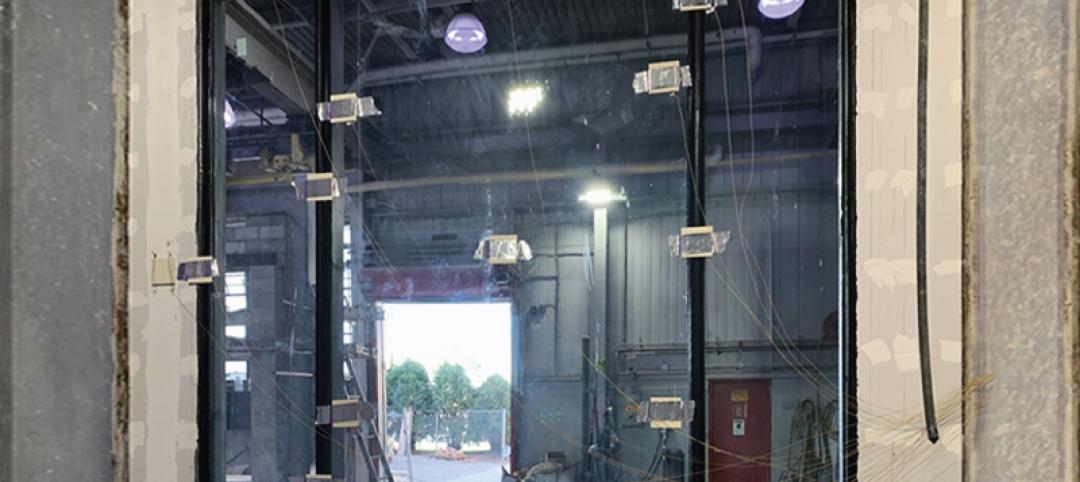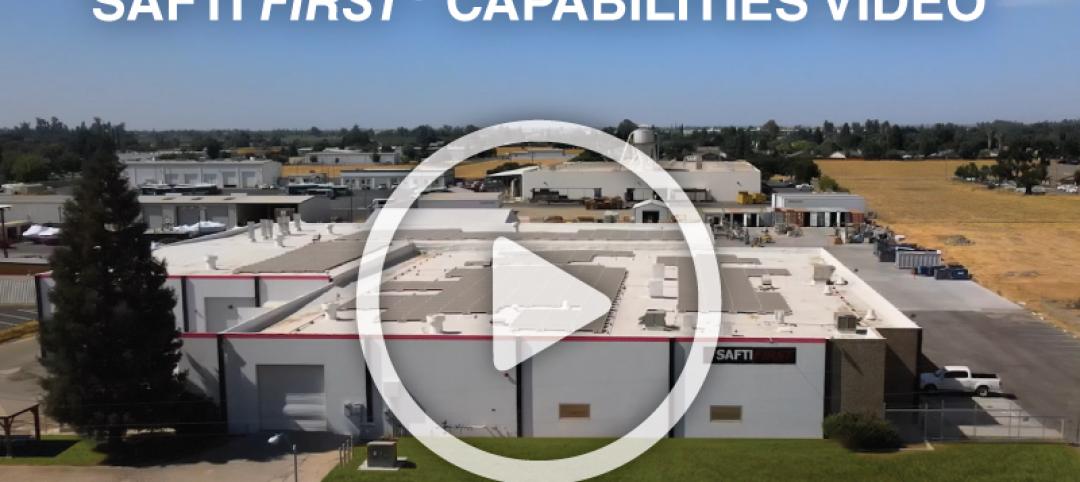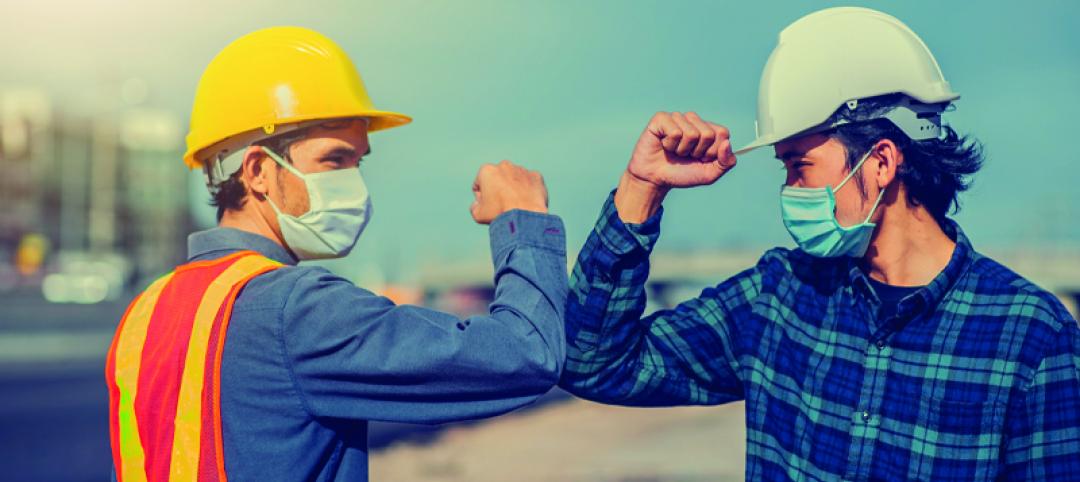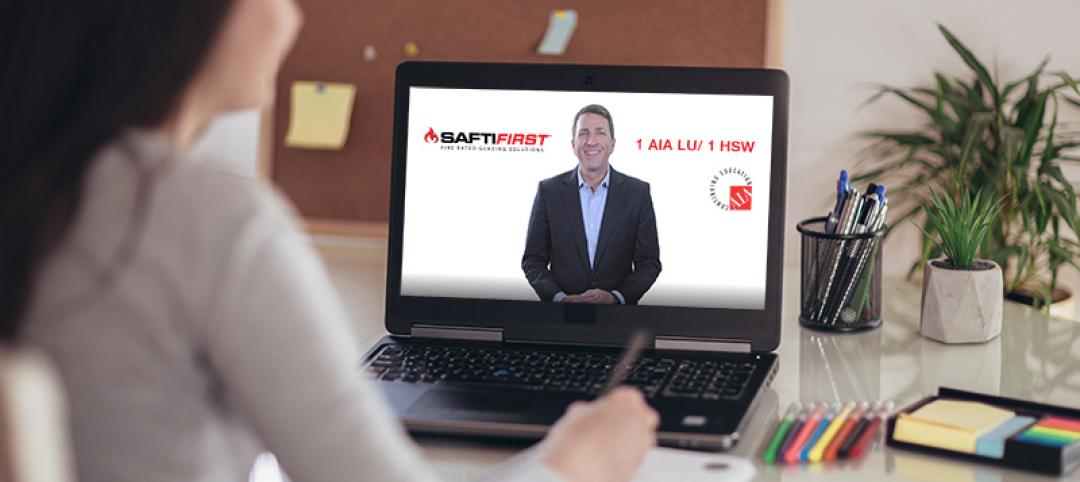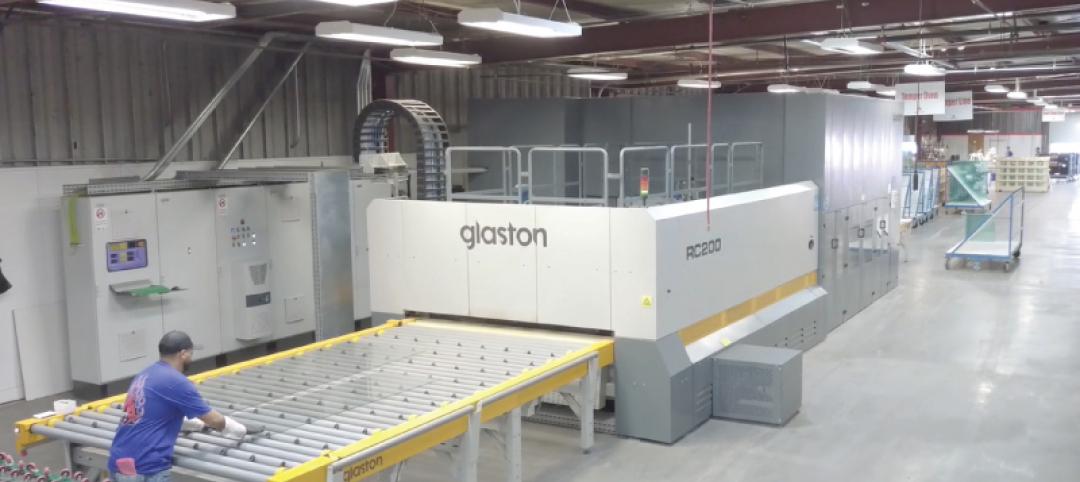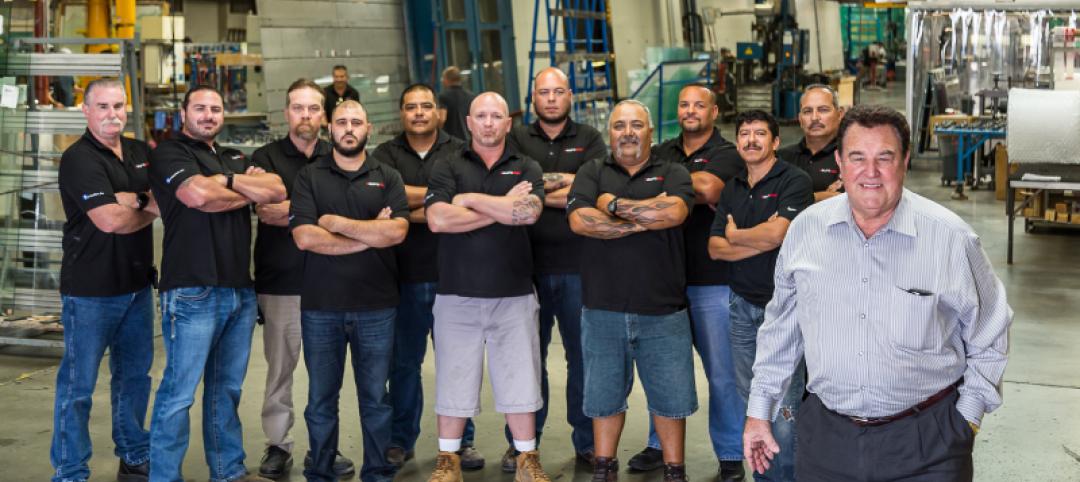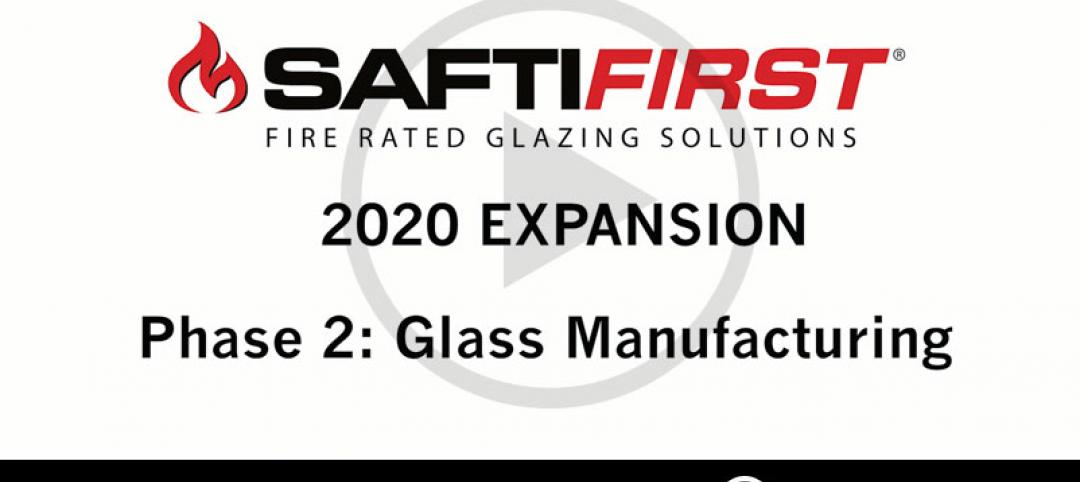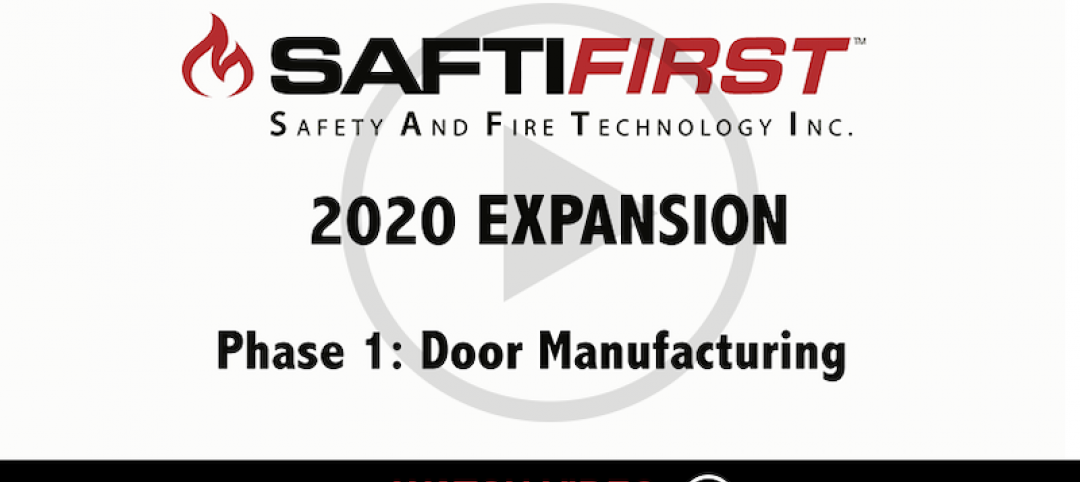A couple of weeks ago, we saw an article published by TYCO, a sprinkler manufacturer, pushing for their alternate 1-2 hour wall assembly using their special purpose deluge sprinkler and tempered glass. In the article, they make the case that tempered glass and deluge sprinklers are cheaper compared to 1-2 hour fire resistive glazing assemblies. However, their estimate only referenced the cost of a couple of sprinkler heads and tempered glass – what they fail to tell the buyer (or the architect) is that there are plenty of hidden costs and safety risks to this assembly.
So before going through the AHJ approval process for this alternate assembly using deluge sprinklers, I’d like to point out a few concerns to help you make an informed decision. I am comparing this this to readily available, USA-made, 1-2 hour fire resistive glazing assemblies that do not need prior AHJ approval.
1. Architects assume all responsibilities and costs of applying for AHJ approval. This includes, but not limited to, the following:

2. Architects and/or building owners are assuming unnecessary safety risks and liabilities when relying on deluge sprinklers for the safety of building occupants.
Other than following the time and temperature curve, there is nothing that resembles the original ASTM E-119 test for deluge sprinklers with fixed glazed assemblies. There is no cotton waste test, there is no hose stream test, and there is no documented report showing how it provides radiant heat protection by limiting the temperature rise on the non-fire side to less than 250 degrees F over ambient.
The possibility of sprinkler failure also poses a real threat to building occupants. No sprinkler manufacturer or installer will guarantee that it will work 100% of the time. When the sprinklers fail to operate, the non-rated glass will be useless in preventing fire, smoke and dangerous radiant heat from spreading. Building occupants are no longer protected, and safe egress becomes almost impossible. Wetting the surface of heat-strengthened glass or tempered glass may prevent thermal shock and compartmentalize smoke and flames, but it won’t prevent the passage of radiant heat. Ceramics may be able to resist cracking or shattering at high temperatures because it is an excellent conductor of heat. This is why it is widely used as cooktops, and why the IBC limits its use to fire protective applications only because it does not limit radiant heat whatsoever.
3. There are several design restrictions for special-purpose deluge sprinklers used with fixed glazed assemblies. This includes, but not limited to, the following:

After comparing the hidden costs, safety risks and design restrictions on special purpose deluge sprinklers that requires prior AHJ approval vs. already approved 1-2 fire resistive assemblies, it is clear to see that merely looking at this in terms of ‘a few sprinkler heads and tempered glass’ exposes the designer and building owner to various costs and liabilities. For more information, visit http://safti.com/tyco-model-ws-and-firelite-plus-ws-product-alert/.
More from Author
Bill O'Keeffe | Oct 19, 2020
Going virtual
Manufacturers use virtual platforms to help architects meet CEU requirements.
Bill O'Keeffe | Jul 16, 2020
Obsolete?
"Revolutional, affordable, USA made Fire Rated Glazing for all fire protective areas makes ceramic glazing obsolete". Check out SuperClear 45-HS and SuperClear 45-HS-LI to understand why!
Bill O'Keeffe | Feb 10, 2020
USA-made fire rated glazing goes big in 2020
We are pleased to announce and share that the second phase of this $8 million expansion, upgrading our fire rated glass manufacturing facilities in Merced, California, is underway.
Bill O'Keeffe | Nov 20, 2019
Demand for advanced, USA-made fire rated glazing “RAISES THE ROOF”
With architects specifying full-vision, code-compliant, 60 and 90 minute, temperature rise doors for exit stairwells and other code required applications, we found this as an opportunity to expand our product offerings.


